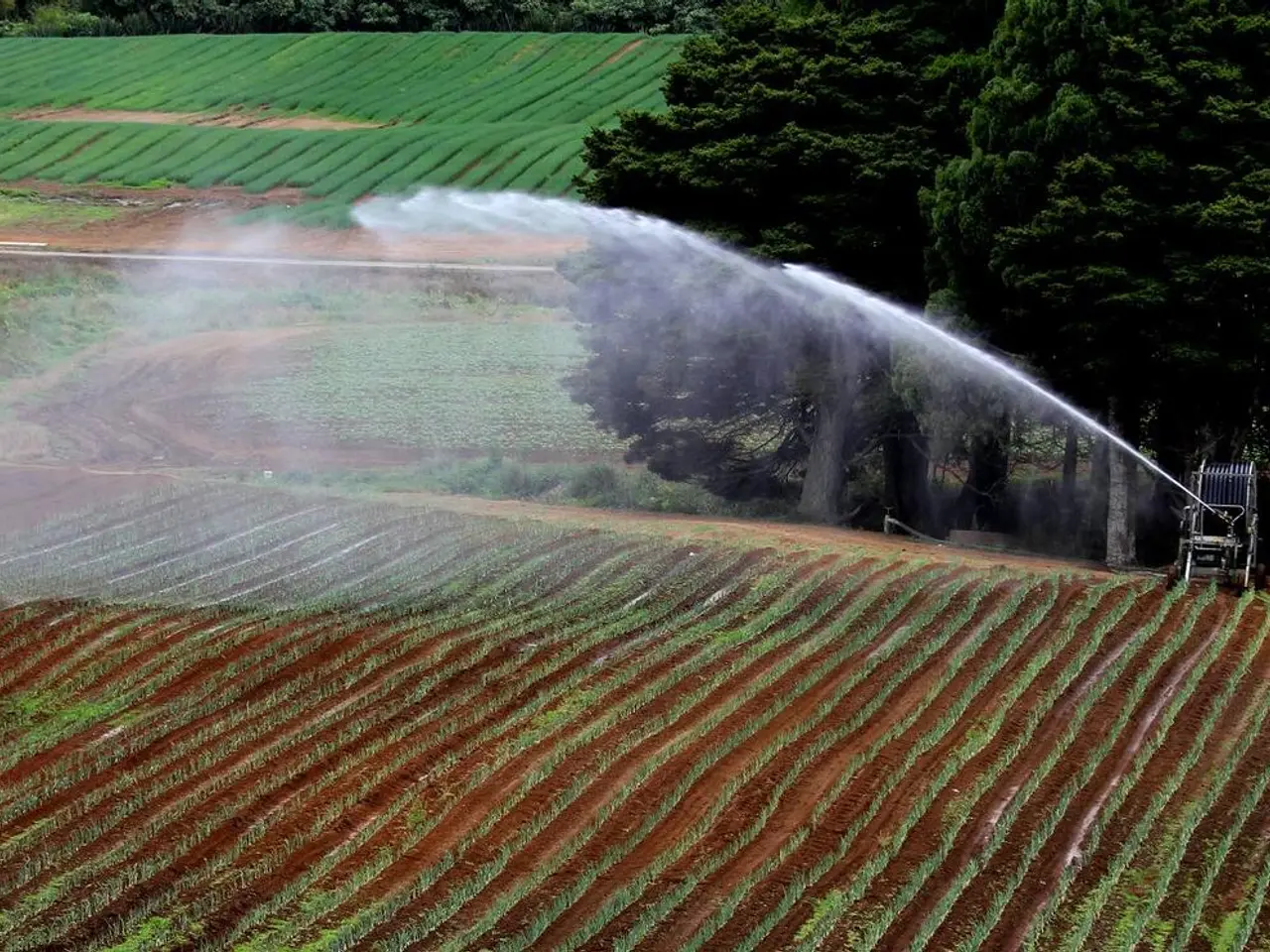Ideal Methods for Efficient Composting in Smaller Agricultural Settings
Small farms can significantly reduce waste and improve farming practices by implementing efficient hot composting techniques. This approach transforms organic waste into nutrient-rich compost, promoting soil health and sustainable farming. Here's a detailed guide on implementing hot composting methods for small farms.
1. **Build the Compost Pile All At Once** - Gather your organic waste materials and assemble the entire pile at once. Shred or chop materials to no larger than 2 inches to increase surface area, encouraging faster decomposition.
2. **Maintain the Correct Carbon-Nitrogen Ratio** - Combine roughly equal amounts of carbon-rich (dry leaves, twigs, cardboard) and nitrogen-rich (kitchen scraps, green leaves, manure) materials to provide balanced nutrition for microbes. This balance supports optimal microbial activity and efficient breakdown.
3. **Pile Size and Location** - Construct the pile in a 4-to-5-foot area to allow heat retention, essential for hot composting. Place the pile in a sheltered, sunny location, ideally close enough for convenient access but not so close to interfere with farm activities.
4. **Maintain Optimal Temperature (131-160°F)** - Hot composting requires keeping the internal pile temperature between 131°F and 160°F to kill pathogens and weed seeds effectively. Achieve this through proper pile management, moisture control, and turning frequency.
5. **Regular Turning for Aeration** - Turn the pile daily for the first two weeks using a pitchfork or compost turner to maintain aeration, distribute heat evenly, and avoid cold spots where pathogens could survive. This turning is labor-intensive but crucial for fast decomposition and producing high-quality compost.
6. **Moisture Management** - The pile should be kept moist but not soggy. Add water if the pile becomes too dry to maintain microbial activity. If the mixture is too wet, add carbon-rich dry materials to balance moisture.
7. **Monitoring and Timing** - Consistency is key: missing a day of turning can disrupt the temperature cycle and slow down the process. Expect the full process to take about 18 days from start to finish using intensive methods like the Berkeley method.
8. **Avoid Adding Certain Materials** - Do not compost meat, dairy, or fat, as these can attract pests and cause odor problems. Avoid diseased plant material, invasive plants, or weed seedheads to prevent spreading unwanted growth.
Following these steps will produce high-quality, rich, earthy-smelling compost with a crumbly texture that is pathogen-free and beneficial for soil health on small farms. This method, while labor-intensive, results in rapid transformation of organic waste and supports sustainable farming practices.
For those with limited space, vermicomposting is an alternative method that uses worms to break down organic waste into rich compost. Setting up a vermicomposting system involves choosing a container, preparing bedding, adding worms, feeding them, and monitoring conditions regularly. Compost from both methods improves soil texture, facilitating root growth and nutrient access. It adds valuable nutrients back into the soil, promoting stronger and healthier plant growth. Additionally, composting helps soil retain water better, reducing the need for frequent watering. Bin composting is a simple and effective method for small farms, keeping things tidy and contained while deterring pests.
- Enhance Your Home Garden with Compost - The rich compost produced through hot composting can greatly benefit your home garden, improving soil texture and promoting healthier plant growth.
- Embark on a Lifestyle of Sustainability - By composting at home, you join the ranks of those dedicated to sustainable living, reducing waste and promoting environmental health.
- Incorporate Composting into Your Health-and-Wellness Routine - Regular gardening and composting activities contribute to overall wellness, providing mental relaxation and physical activity while promoting a healthier lifestyle.
- Fostering a Healthy Environment Begins at Home - By implementing composting techniques, you contribute to environmental science, reducing waste and promoting sustainable practices while contributing to the long-term health of the planet and its ecosystems.




